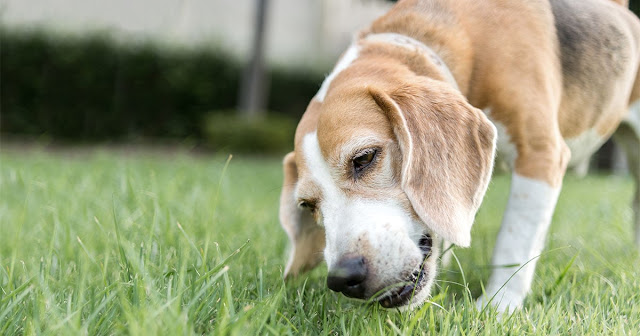Dogs, our beloved companions, exhibit some curious behaviors, one of which is their occasional munching on grass. This peculiar habit has intrigued dog owners and experts alike for generations. Understanding why dogs engage in this behavior requires delving into various aspects of their instincts, diet, and health.
Why Do Dogs Eat Grass?
The Curiosity Behind Canine Grass Consumption
Canine Dietary Behavior
A common misconception suggests that dogs consume grass solely due to an upset stomach. However, recent studies and veterinary observations propose a more nuanced understanding. Dogs, as omnivores, exhibit diverse dietary behaviors influenced by instinctual and adaptive inclinations.
Natural Instincts and Evolutionary Traits
Historically, dogs' ancestors, like wolves, consumed vegetation occasionally. In the wild, this behavior served various purposes, such as aiding digestion, providing additional nutrients, or as a means of eliminating parasites from their stomachs.
Exploring Possible Reasons
Nutritional Deficiencies
Some theories propose that dogs may eat grass to supplement their diet with essential nutrients like fiber or specific minerals lacking in their regular meals. This behavior might act as a natural instinct to compensate for dietary gaps.
11111
Soothing Digestive Discomfort
While it's not the primary reason, dogs might resort to nibbling grass when experiencing mild gastrointestinal irritation. Grass consumption might help induce vomiting, assisting in alleviating the discomfort.
Understanding Your Dog's Grass-Eating Habits, Why Do Dogs Eat Grass?
Observation and Monitoring
As a responsible pet owner, observing your dog's grass-eating habits is crucial. Regularly monitor their behavior and consider consulting a veterinarian if this behavior becomes excessive or if your pet displays signs of distress.
Dietary Considerations
Ensuring a balanced and nutritious diet for your furry companion can play a significant role in minimizing their urge to eat grass. High-quality dog food enriched with essential nutrients reduces the likelihood of nutritional deficiencies.
Behavioral Training and Environmental Factors
Engaging your dog in stimulating activities and providing ample exercise can divert their attention away from grass consumption. Creating a safe and engaging environment helps in curbing this behavior.
Conclusion
In conclusion, the question "why do dogs eat grass?" lacks a singular answer. It's a multifaceted behavior rooted in their evolutionary history, nutritional needs, and possible instinctual remedies for mild discomfort. As pet owners, understanding this behavior aids in ensuring the overall well-being of our canine companions.
Understanding your dog's behavior is a key aspect of responsible pet ownership. While occasional grass eating might be harmless, excessive consumption or signs of distress warrant attention. Consulting a veterinarian is always advisable to rule out any underlying health concerns.
For further insights and tailored advice regarding your pet's behavior, seek professional guidance from a certified veterinarian. Remember, a healthy and happy dog is a cherished companion.
Also Read - 7 Natural Remedies for Itchy Dog Skin: Soothe Your Furry Irritation Naturally

